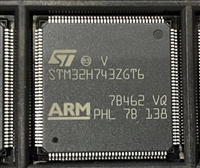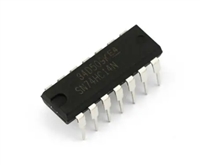| 是否Rohs认证: | 符合 | 生命周期: | Obsolete |
| 零件包装代码: | BGA | 包装说明: | LBGA, BGA165,11X15,40 |
| 针数: | 165 | Reach Compliance Code: | compliant |
| ECCN代码: | 3A991.B.2.A | HTS代码: | 8542.32.00.41 |
| 风险等级: | 5.84 | Is Samacsys: | N |
| 最长访问时间: | 0.45 ns | 其他特性: | PIPELINED ARCHITECTURE |
| 最大时钟频率 (fCLK): | 267 MHz | I/O 类型: | SEPARATE |
| JESD-30 代码: | R-PBGA-B165 | JESD-609代码: | e1 |
| 长度: | 17 mm | 内存密度: | 67108864 bit |
| 内存集成电路类型: | QDR SRAM | 内存宽度: | 8 |
| 湿度敏感等级: | 3 | 功能数量: | 1 |
| 端子数量: | 165 | 字数: | 8388608 words |
| 字数代码: | 8000000 | 工作模式: | SYNCHRONOUS |
| 最高工作温度: | 85 °C | 最低工作温度: | -40 °C |
| 组织: | 8MX8 | 输出特性: | 3-STATE |
| 封装主体材料: | PLASTIC/EPOXY | 封装代码: | LBGA |
| 封装等效代码: | BGA165,11X15,40 | 封装形状: | RECTANGULAR |
| 封装形式: | GRID ARRAY, LOW PROFILE | 并行/串行: | PARALLEL |
| 峰值回流温度(摄氏度): | 260 | 电源: | 1.5/1.8,1.8 V |
| 认证状态: | Not Qualified | 座面最大高度: | 1.4 mm |
| 最小待机电流: | 1.7 V | 子类别: | SRAMs |
| 最大供电电压 (Vsup): | 1.9 V | 最小供电电压 (Vsup): | 1.7 V |
| 标称供电电压 (Vsup): | 1.8 V | 表面贴装: | YES |
| 技术: | CMOS | 温度等级: | INDUSTRIAL |
| 端子面层: | Tin/Silver/Copper (Sn/Ag/Cu) | 端子形式: | BALL |
| 端子节距: | 1 mm | 端子位置: | BOTTOM |
| 处于峰值回流温度下的最长时间: | 40 | 宽度: | 15 mm |
| Base Number Matches: | 1 |
| 型号 | 品牌 | 描述 | 获取价格 | 数据表 |
| CY7C1510JV18-267BZXC | CYPRESS | 72-Mbit QDR⑩-II SRAM 2-Word Burst Architectur |
获取价格 |

|
| CY7C1510JV18-267BZXI | CYPRESS | 72-Mbit QDR⑩-II SRAM 2-Word Burst Architectur |
获取价格 |

|
| CY7C1510KV18 | CYPRESS | 72-Mbit QDR II SRAM 2-Word Burst Architecture Two-word burst on all accesses |
获取价格 |

|
| CY7C1510KV18_09 | CYPRESS | 72-Mbit QDR-II SRAM 2-Word Burst Architecture |
获取价格 |

|
| CY7C1510KV18_11 | CYPRESS | 72-Mbit QDR II SRAM 2-Word Burst Architecture Two-word burst on all accesses |
获取价格 |

|
| CY7C1510KV18-167BZC | CYPRESS | 72-Mbit QDR-II SRAM 2-Word Burst Architecture |
获取价格 |

|
 STM32H743技术深度剖析与应用案例探索
STM32H743技术深度剖析与应用案例探索

 LM321中文资料解析:引脚功能介绍、技术特点、技术特性分析
LM321中文资料解析:引脚功能介绍、技术特点、技术特性分析

 74HC14芯片资料介绍:性能特性分析、引脚介绍
74HC14芯片资料介绍:性能特性分析、引脚介绍

 LM1875芯片手册:功放参数分析、引脚说明、电路设计要点
LM1875芯片手册:功放参数分析、引脚说明、电路设计要点
